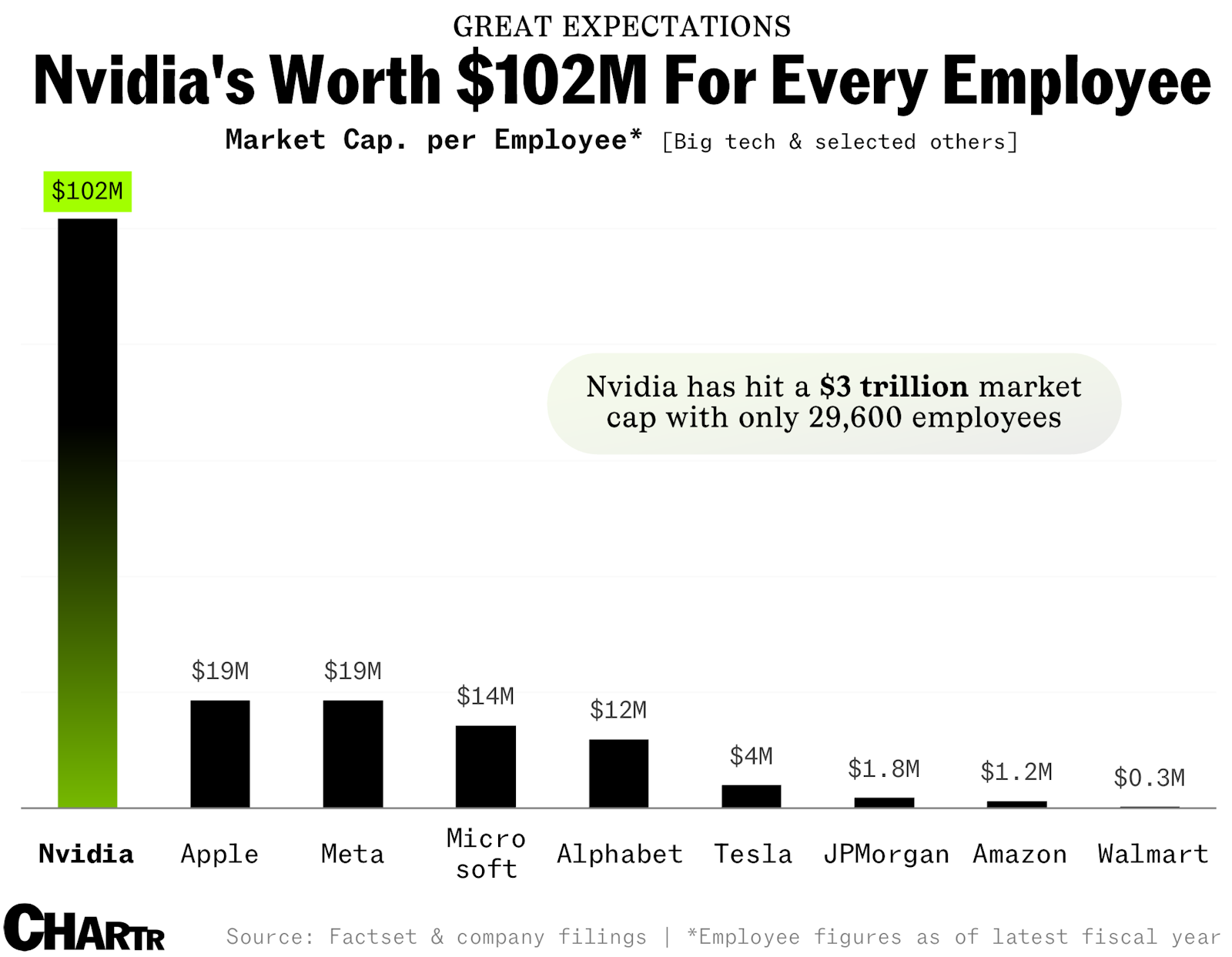- cross-posted to:
- [email protected]
- cross-posted to:
- [email protected]
I know this is more business than tech related, but for some reason I am not able to post it to the business community, so I’m posting it here.
"…For Nvidia, after this latest run-up took it north of the $3T milestone, the company is being valued at more than $100M for each of its 29,600 employees (per its filing that counted up to the end of Jan 2024).
That’s more than 5x any of its big tech peers, and hundreds of times higher than more labor-intensive companies like Walmart and Amazon. It is worth noting that Nvidia has very likely done some hiring since the end of January — I think the company might be in growth mode — but even if the HR department has been working non-stop, Nvidia will still be a major outlier on this simple measure.
We are running out of ways to describe Nvidia’s recent run… but a nine-figure valuation per employee is a new one."



Book value doesn’t take into account future value, wall street value does
Meaning speculation. Just because someone is willing to buy Nvidia stock at a $3 trillion valuation doesn’t mean it will someday achieve that kind of tangible value.
The problem is believing in some kind of objective, “tangible” value.
You don’t have to believe in objective tangible value. However, there’s clearly a difference between a vegetable farm and a cryptocurrency. The former makes something and provides services. The latter does not. These are extreme examples of market and value distortion. The very existence of crypto is a nail in the coffin of the neoliberal theory about rational markets.
What’s the difference, really?
The market ultimately dictates value
The difference is that the stock market has a very distorted definition of value.
If you say that the value of something is what someone else is willing to pay for it, I could trade my house with a friend and say they paid a billion for it, except they paid me with their own billion-dollar house, and we would both become billionaires. Of course, that would be bullshit, but if my friend and I sat on the board of the FED, it would somehow become actually real.
I see how that works, but the question is, how far can that stretch? Wall Street already tells us there is stuff worth more than 40 years of the US GDP trading around in their pockets, so how much more can that get before they get called on their bullshit like me and my hypothetical friend?
It’s a ponzi scheme
In which we all participate whether we like it or not.
Except we would grab loans from our banker friends who are also in on the scheme, and use some of that money to pay taxes and buy some congresscritters to avoid further taxes. The banker guys would then grab some loans themselves, preferably also from each other, as they slowly repackage the whole thing and then sell it to retirement funds to make it everyone else’s problem. /s
Ish, over the medium to long term Nvidia will have to start paying dividends that align with the cost of the share. Otherwise the market will leave for better paying, lower cost stocks.
Cool. I am glad to know I imagined the real estate crash of 2007.